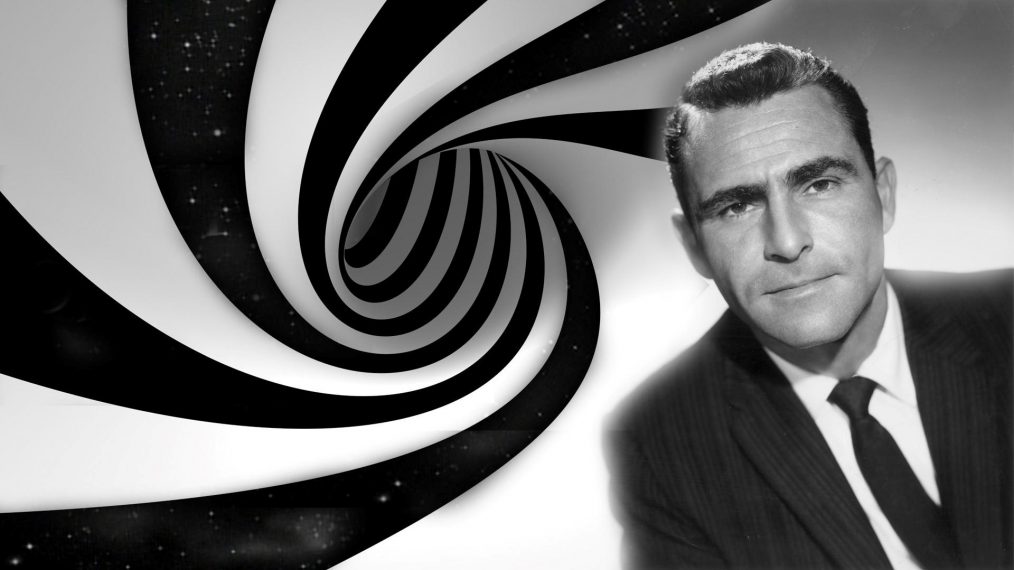The Twilight Zone is considered one of the best tv exhibits of all time. And the twice yearly airing of the ’60s sequence on Fourth of July and New 12 months’s Eve has turn out to be as a lot a convention on Syfy as watching A Christmas Story on TBS.
Listening to numerous tales narrated by sequence creator Rod Serling about man’s folly and the teachings life will at all times supply seems like the right option to ring in a brand new yr. Though humankind nonetheless faces the identical points and fears that we did again when Serling created the science fiction anthology, the ethical story of every weird tackle the subject material is at all times poignant and asks for the most effective of society.
There aren’t many exhibits right now that maintain individuals accountable for his or her collective conduct, and much fewer supply classes on learn how to behave on this planet. This stuff make The Twilight Zone so revered and why it deserves celebrating to this present day. So, as New 12 months approaches, and also you’re settling into your subsequent cup of vacation spirits, take a look at our listing of the 15 greatest episodes of The Twilight Zone.
What are your favorites? Tell us within the feedback beneath–and relaxation assured, regardless of the place we could also be, we can be tuning into the Syfy marathon, too!
The Twilight Zone, December 31-January 1, Syfy
15. To Serve Man”(Season 3, Episode 24)
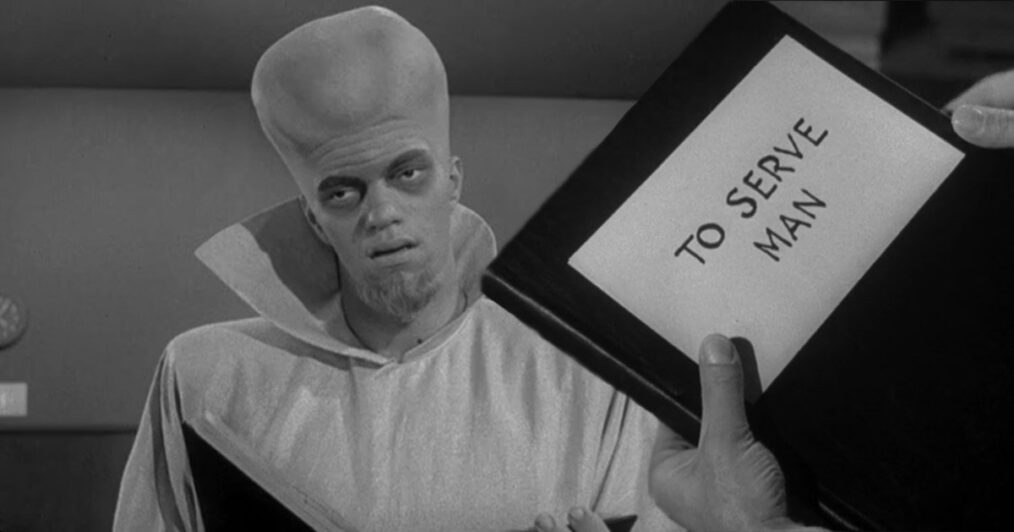
CBS
A seemingly useful alien civilization provides options to Earth’s issues after which invitations individuals to their house planet with a e book as a information. Cryptologists decipher the e book’s identify, however the fact inside is revealed too late. The episode is known for its unintentional black-comedy twist, highlighting society’s means to blindly belief those that promise them no matter it’s they want. It additionally showcases The Twilight Zone’s talent in mixing incredible premises with existential horror and irony, reminding of us why they fell in love with the sequence within the first place.
14. The Silence (Season 2, Episode 15)
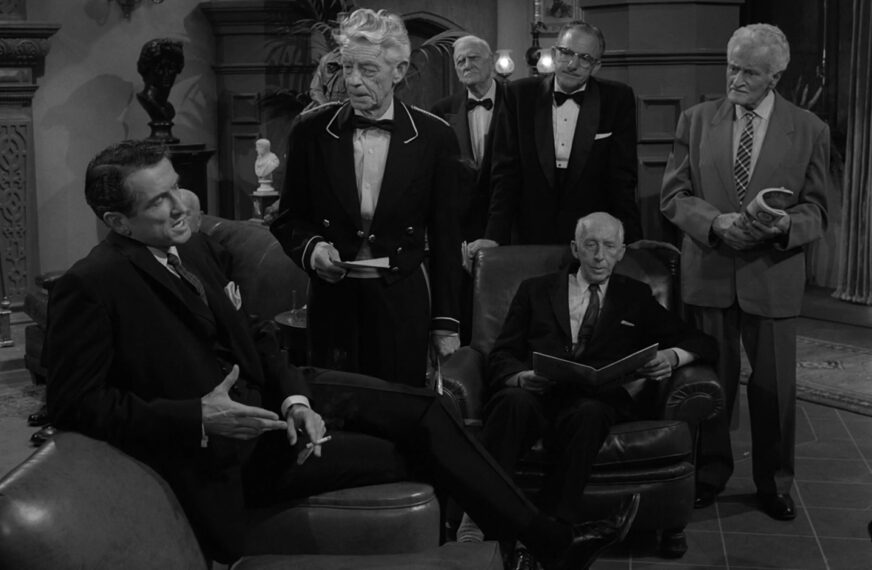
CBS
“The Silence” is an underrated gem that pulls inspiration, partially, from Anton Chekhov’s quick story “The Guess.” It’s “the story of probably the strangest guess ever to happen within the annals of likelihood.” Irritated by the incessant speaking of a fellow membership member, a person challenges him to remain silent for a yr, residing in a glass enclosure within the membership’s basement. Notably, the episode deviates from the present’s conventional science fiction components, which makes the unimaginable dialogue and two twists stand out a lot. It’s an indication of pleasure and humility, but additionally a desperation for cash nonetheless prevalent in exhibits similar to Squid Recreation and its actuality present successor. Artwork imitates life, in any case.
13. The Grave (Season 3, Episode 7)
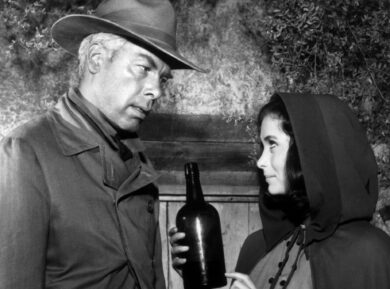
CBS/ Everett Assortment
This episode briefly examines poisonous masculinity and the lack to confess concern. It additionally delves into the paranormal and the way disrespecting the useless could come again to hang-out you. A cowboy fails to dispatch an outlaw, and a bar filled with his contractors calls him out for it. The city removed the outlaw itself, however simply earlier than he died, he instructed them the cowboy skipped out on their confrontation. Upon the cowboy’s return, the bar makes a guess that the cowboy is simply too afraid to go to the grave. The cowboy reluctantly accepts. If solely this grown grownup male didn’t succumb to look strain. “You are taking this with a grain of salt or a shovelful of earth, as shadow or substance, we go away it as much as you,” Serling says throughout the closing narration.
12. Dwelling Doll (Season 5, Episode 6)
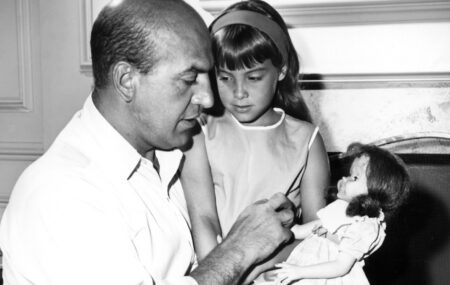
CBS/Everett Assortment
The stepfather on this installment is comically hot-tempered and merciless in the best way a person from the ’60s might solely be. When his spouse and stepdaughter stroll in with a brand new speaking doll, he loses it over the acquisition. Then we’re clued in that he doesn’t get together with the stepdaughter. The doll then turns into the bodily manifestation of the mistreatment of the person’s household, and each time he goes too far, the threats from the doll turn out to be extra actual. It quickly turns into obvious this doll is defending the household and fulfilling the wishes of the small lady.
11. Nick of Time (Season 2, Episode 7)
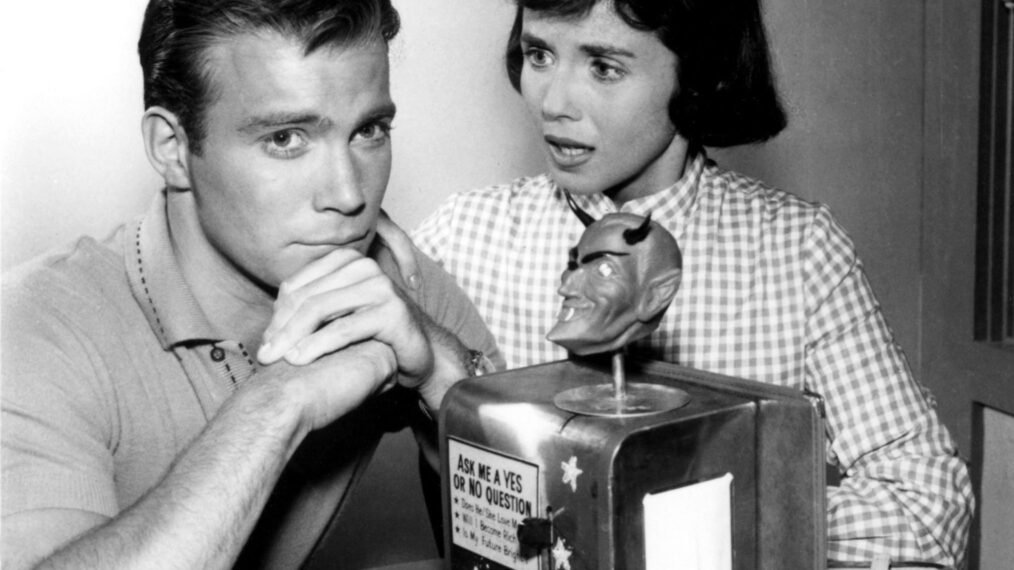
CBS/Everett Assortment
This episode showcases a younger William Shatner succumbing to a toy fortune-teller at a diner that feeds into the person’s superstitions and fears. Earlier than his “Nightmare at 20,000 Ft” debut, Shatner is affected by the “what ifs” in life, which hold him from leaving the desk and getting on along with his life. It’s as if Serling is saying that, for some, dwelling an unsure life isn’t any option to dwell. It’s as if a lifetime of uncertainty is one other model of dwelling in The Twilight Zone itself. Nevertheless, by the tip, it’s clear that uncertainty makes life what it’s.
10. The Masks (Season 5, Episode 25)
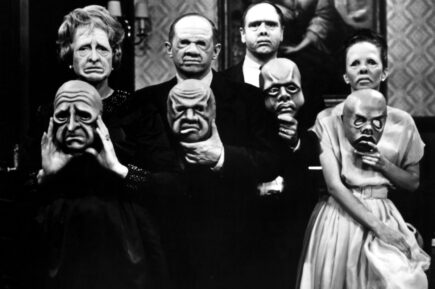
CBS/Everett Assortment
An outdated, dying, wealthy father has a vapid household that awaits his inheritance with bated breath. He considers his spoiled youngsters changeless and, as his dying want, calls for they put on horrific masks. Besides these ugly masks are mystical and meant to symbolize the wearer. The person spends his remaining hours on the mortal coil, being brutally sincere along with his disgust of his household, and holds an unpleasant mirror up at them, figuratively and actually, as soon as they understand the horrible masks have turn out to be their new faces. It feels cathartic watching this man berate his household, who solely yearn to see him die to devour his riches like vultures. It feels even higher seeing all of them getting their simply desserts after the daddy lastly perishes. “They now put on the faces of all that was inside them—they usually’ll put on them for the remainder of their lives,” Serling concludes.
9. The Howling Man (Season 2, Episode 5)
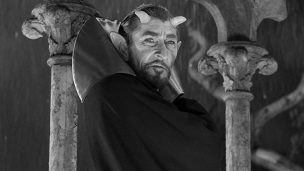
Courtesy of Syfy
Evil is simply as a lot part of this world pretty much as good. Each are wanted and are forces of nature, however neither might be staved off endlessly. And that’s the message of “The Howling Man,” when a wanderer unintentionally frees the satan out into society. Very similar to the Satan, he methods the person into believing he’s a helpless sufferer who was restrained by the monks who’ve sheltered the wanderer up so far. However when he questions the monks, they usually inform them the reality, it’s simpler for the wanderer to just accept the lie of The Satan, which results in his freedom.
It’s a cut-and-dry story about what plagues mankind’s best atrocities, what drives individuals to imagine what’s handy over the reality, and that staving evil is like making an attempt to comprise smoke within the palms of your fingers. Evil is an inevitability.
8. Strolling Distance (Season 1, Episode 5)
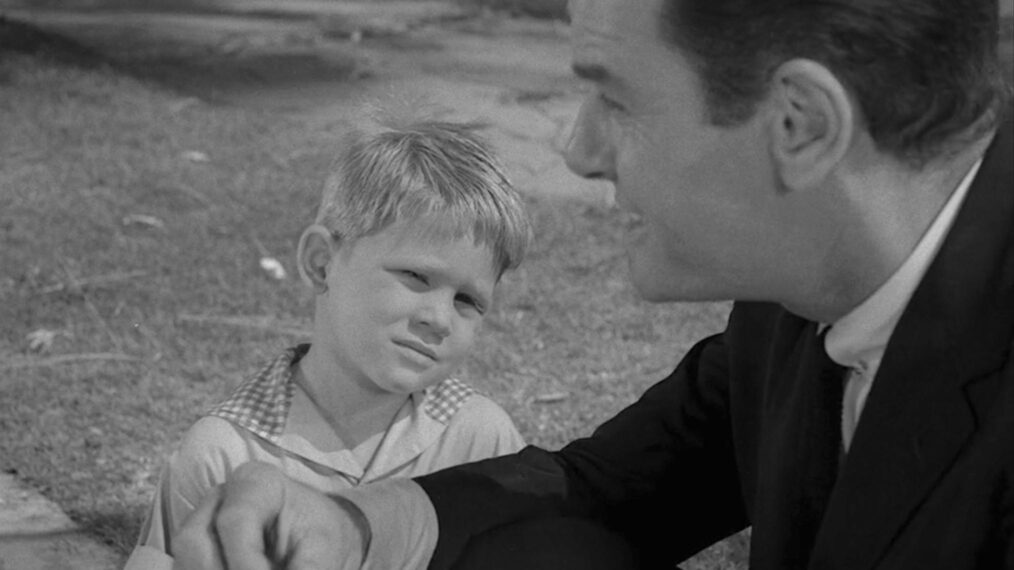
CBS
In our more and more complicated world, there’s a collective craving inside society to return to easier occasions, a sentiment amplified in Martin Sloan’s expertise. Initially wanting a journey again to his childhood days, he quickly discovers that such a regression solely serves to blur once-cherished, rose-tinted recollections. Nostalgia’s attract pervades modern society, weaving its means into our media, music, and even our emotional core, as tradition capitalizes on the comforting embrace of the previous. Sadly, this reliance on nostalgia typically hinders the creation of latest, contemporary moments of fondness. The episode additionally serves as a critique of the unrelenting pressures of the enterprise world and the disillusionment that accompanies maturity. Narratives like this are timeless, as confirmed by Serling’s closing monologue.
7. Eye of the Beholder (Season 2, Episode 6)
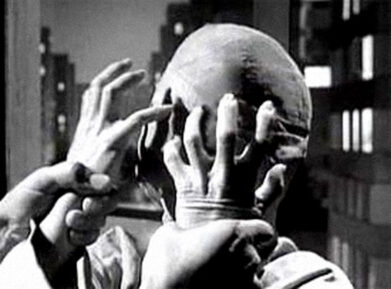
CBS/Everett Assortment
With some of the iconic endings within the present’s historical past, “Eye of the Beholder” will not be solely a masterclass in writing but additionally route, as no faces are revealed for all the episode. We imagine the title of this installment is because of our character’s hideous face holding her from conforming to society. However it isn’t till the reconstruction of her face is revealed that we see the true ethical of this story, and the reveal is masterful. We then understand the message goes towards mentioned conformity, particularly once we be taught it’s state-mandated that residents look a sure option to be embraced. It, alongside many different moments of the present, has gone on to turn out to be a staple within the popular culture lexicon, with numerous callbacks and references to this explicit second.
6. 5 Characters in Search of an Exit (Season 3, Episode 14)
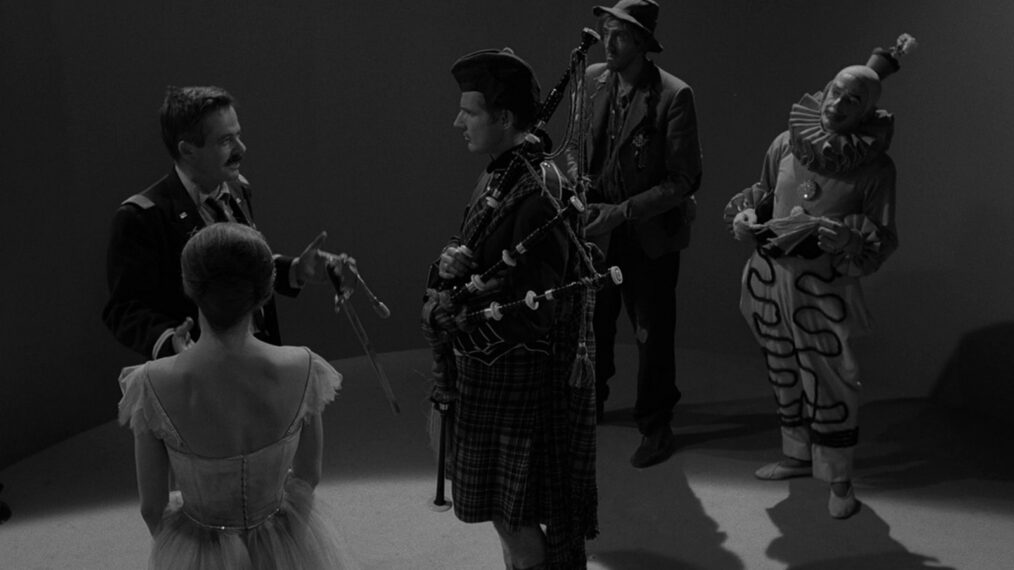
CBS
Trapped in a featureless chamber with no recollection of their arrival, a ballerina, bagpipe participant, old-school hobo, severe clown, and gung-ho Military main discover themselves acutely aware and alive indefinitely. Past its mysterious setting and plot, the episode is famend for eschewing ethical endings, opting as a substitute for some of the extravagant and haunting twists in its assortment of tales. This conclusion’s resonance might be noticed in different narratives with elaborate endings, exemplified in exhibits like St. Elsewhere and Misplaced, although executed to larger influence. The 1997 movie Dice is alleged to have drawn inspiration from this episode. The TV sequence Felicity acknowledged its affect within the episode “Assist for the Lovelorn,” directed by Lamont Johnson, who additionally directed the referenced episode. Surprisingly, even the preliminary three Toy Story films contact on themes of existentialism, goal, and the idea of life, very like this single episode managed in a mere 22 minutes.
5. The Little Folks (Season 3, Episode 28)
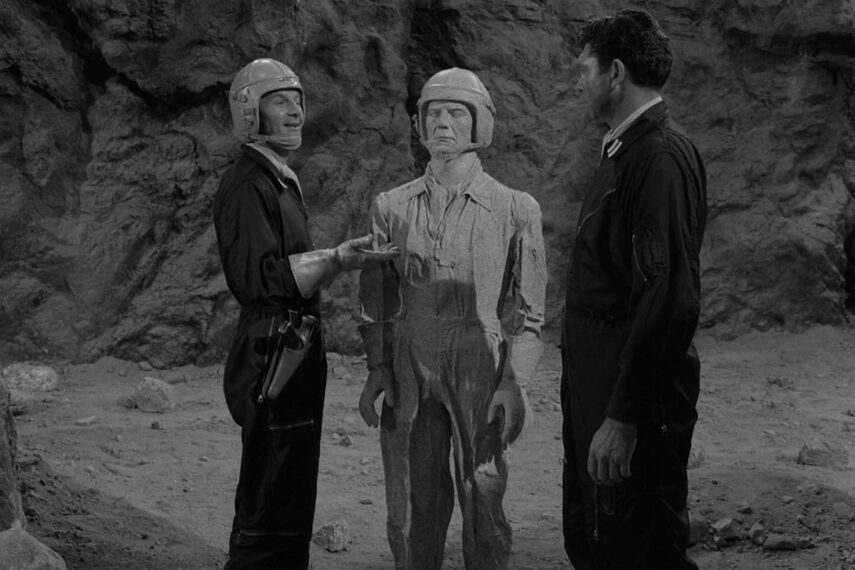
CBS
What occurs when the common man has the prospect to turn out to be an enormous shot? Would he method the place humbly, treating different common Joe’s higher than he was? Or would he turn out to be essentially the most highly effective massive shot of all of them? A ruler of all? Properly, when two stranded astronauts come throughout a tiny civilization of aliens on a barren planet, one develops a God Complicated, and the opposite delivers the right evaluation of his accomplice’s gradual descent. The twist comes towards the tip when “the God” feels most in management; he’s reminded how tiny of a person he actually is. Serling closes by saying the person was “a sufferer of a delusion,” and on this case, “the dream dies a bit of tougher than the person.” Rick and Morty even parodied it!
4. The Shelter (Season 3, Episode 3)
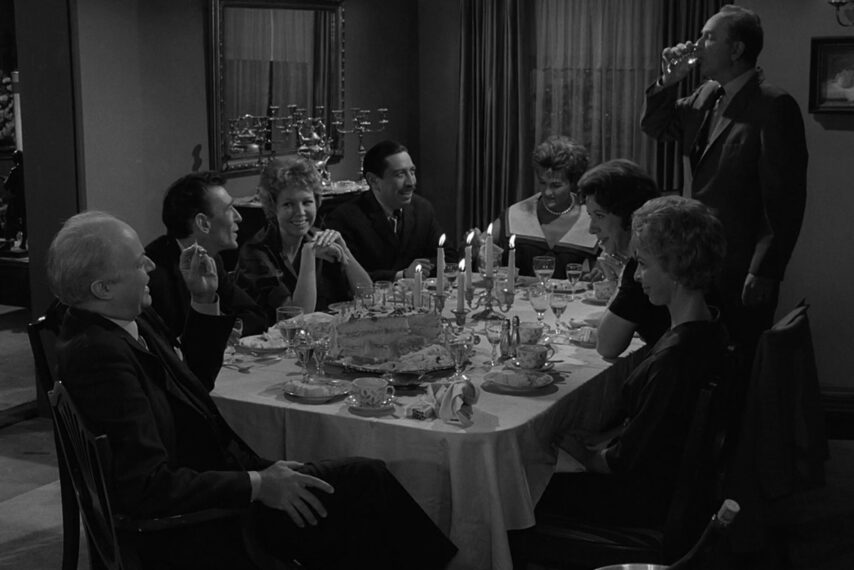
CBS
Rod Serling was in his bag throughout the third season, which is clear by our listing. This episode serves as a microcosm of what would occur if the water shut off and the tip was close to. What would occur if assets had been scarce for survival and the inevitable conflict between the haves and have-nots ensued? Neighbors would activate one another, and all of the dismal causes to see your fellow man as an enemy would bubble as much as the floor. It additionally asks if our interactions with one another are actual or a masks we present one another as a comfort.
“The Shelter” showcases how merciless the technique of survival can get and the way turning a blind eye to the ills of society could chunk you within the ass when all of it hits the fan. Though these themes are explored within the episode “The Monsters Due on Maple Road,” we like that the enemy right here comes from inside as a substitute of one thing exterior.
3. It’s a Good Life (Season 3, Episode 8)
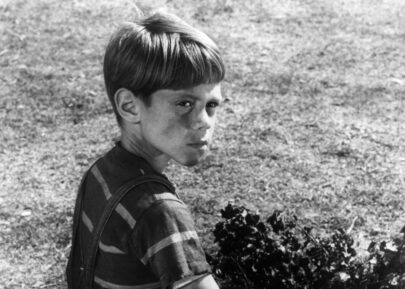
CBS/Everett Assortment
One other traditional episode from Rod Serling is predicated on Jerome Bixby’s quick story of the identical identify. This installment depicts a baby with supernatural powers and a foul mood who could make issues he doesn’t like disappear, together with individuals. If any adults go towards him, they face the repercussions of being despatched to the cornfield. It’s a baby’s male energy household that involves life, showcasing how energy is corruptible regardless of who or what age you’re. It’s additionally price mentioning how incredible the performances are. You may actually really feel the concern from the adults at any time when this small youngster suggests even the slightest irritation.
TV Information Journal considers it to be one of many best episodes of the sequence, and it’s arduous to argue towards it. The episode has impressed different tales, such because the 2017 Black Mirror episode “USS Callister,” The Omen, and even a online game quest from Fallout 3. It’s additionally been spoofed from every part from The Simpsons to Johnny Bravo.
2. A Recreation of Pool (Season 3, Episode 5)
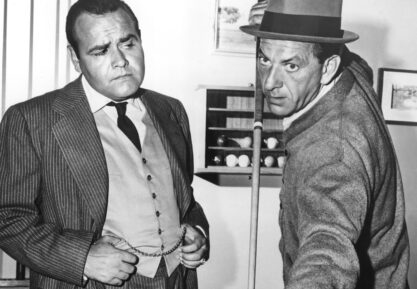
CBS/Everett Assortment
It is a bottle episode and an abridged model of the Jackie Gleason movie The Hustler. As such, it roughly shares the identical plot. It additionally shares its penchant for wonderful dialogue, pristine digital camera work, and nice pool motion. However it additionally has a layer of clashing philosophies and ideologies that come to life throughout the aggressive sport. However after all, The Twilight Zone provides its personal spin by elevating the sport’s stakes and placing each males’s souls on the road.
What does it imply to be the most effective? A legend? What occurs when your pleasure turns into your occupation, and what do you miss out on as a result of your quest to be primary? All of those questions and extra are explored in “A Recreation of Pool,” and it’s a masterpiece in each sense of the phrase.
1. Time Sufficient at Final (Season 1, Episode 8)
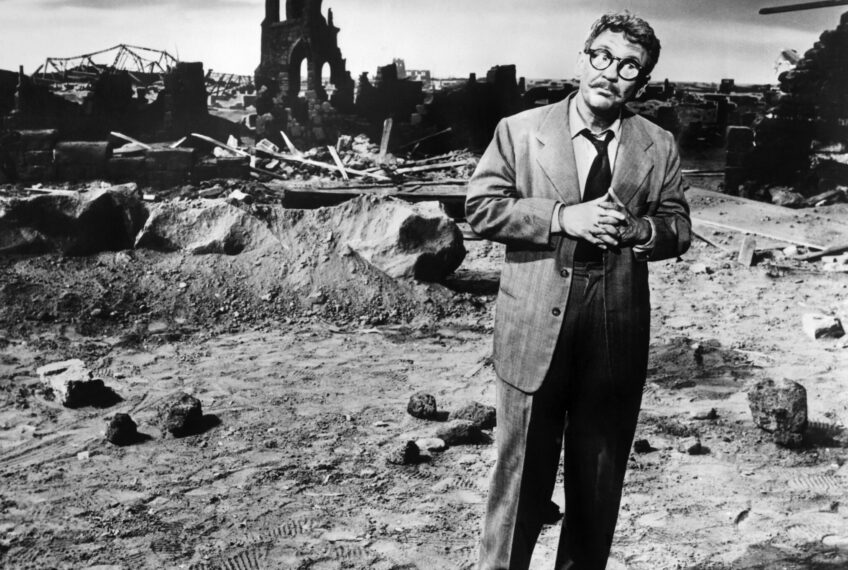
CBS/Everett Assortment
What might be mentioned about this timeless installment of the anthology sequence that hasn’t already been mentioned? It’s a type of installments you develop up realizing the ending of due to numerous references and parodies to it, like Household Man. What makes the ending of this episode so iconic is the meek Henry Bemis’s (performed by Burgess Meredith) desperation to learn within the first place. Everybody ridiculed his bookworm tendencies, and he obtained no respect from individuals, which solely made him retreat into his books additional.
Though most make enjoyable of the irony of the ending, popular culture not often analyzes among the themes of this story; some embody its critique of retreating from society, being cautious what you would like for, and the way the decline of studying bodily books is turning into a factor of the long run.
Honorable Mentions
Nightmare at 20,000 Ft (Season 5, Episode 3)
The Twilight Zone succeeds by staying near our actuality but enhancing the concern in sure situations. Some episodes heighten present fears, such because the unsettling expertise of air journey. Regardless of comforting statistics, boarding a seemingly unfathomable machine will endlessly stay a leap of religion. Now, think about a lone passenger, Bob Wilson (performed nervously by William Shatner), seeing a malevolent monster bent on crashing the airplane— a monster seen solely to him. It terrifies Wilson, particularly contemplating he’s flying for the primary time after a earlier nervous breakdown on a airplane. It’s not out of the realm of chance, however a concern that may solely be enhanced by the depraved corners of The Twilight Zone–or a managed substance on a flight to Orlando.
A Good Place To Go to (Season 1, Episode 28)
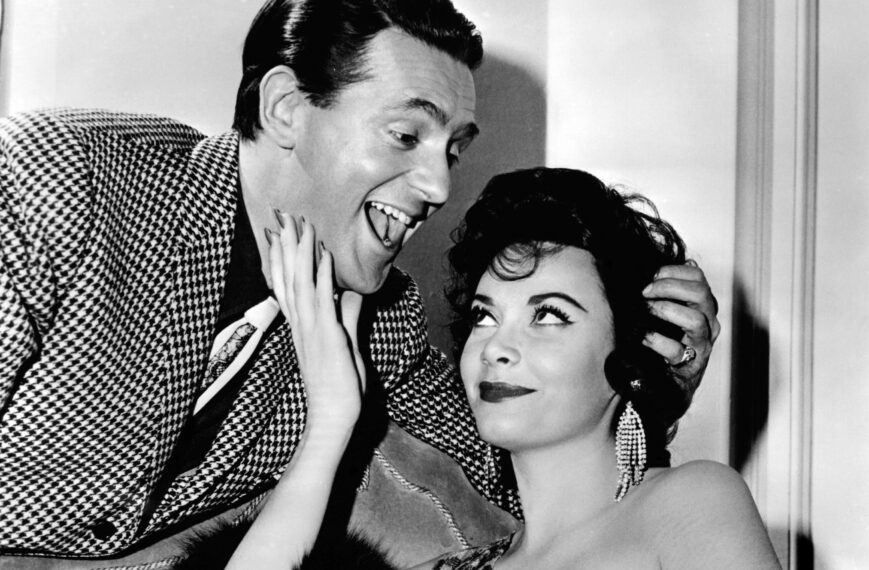
CBS/Everett Assortment
A petty thief named Rocky Valentine dies and passes on, in line with his guardian angel, Pip. Though he maintains his skepticism, his needs for every part he ever wished in life are granted immediately: cash, slacking off each day on the on line casino, and a penthouse suite with “a chick that received’t stop.” However what occurs when an unscrupulous character will get every part he can ask for at a whim? What occurs when success turns into ash in your mouth? What does the non-public hell of an unsavory man appear like?
Unrelated: Donald Trump as soon as commented that this episode impressed his philosophy of success, stating, “I battle arduous for victory, and I believe I get pleasure from it as a lot as I ever did. However I understand that perhaps new victories received’t be the identical as the primary couple.” We expect this parallels with the closing narration fairly nicely: “A scared, indignant little man who by no means obtained a break. Now he has every part he’s ever wished – and he’s going to must dwell with it for eternity.”

